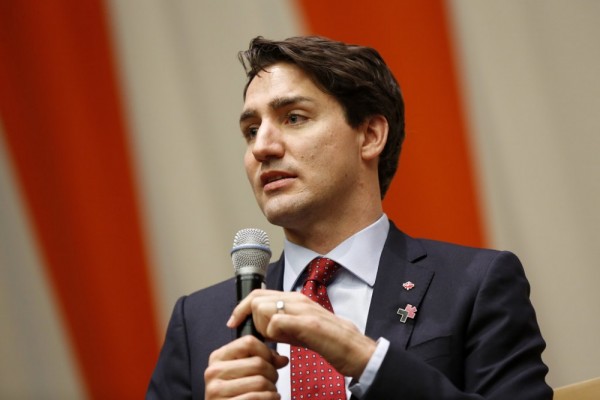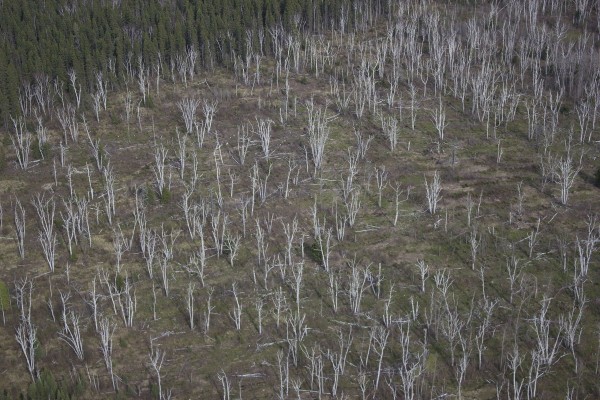The environmental vaccine: How COVID-19 opens the door to a Green New Deal
Let us use this ‘war on COVID’ to learn from our past mistakes, and prepare us for a socially and environmentally just future

“Growing Strong Together.” Artwork by Sarah Bloom/Creative Action Network.
We live in an era of overlapping crises: climate change, global inequality, the rise of the far-right, nuclear proliferation, and now, COVID-19.
As I write this, governments worldwide continue to be paralyzed in the face of desperate demands to respond effectively to a pandemic that has already claimed the lives of more than 25,000 people. Meanwhile, those whose tepid responses are sufficient to maintain the status quo are lauded as leaders.
Based on the evidence we have thus far, it seems unlikely that most politicians are up to the challenge. As working people wonder how they are going to pay rent, and businesses shutter amid soaring unemployment, COVID-19 is making clear what progressives have known for years: we need a bold plan to transition away from our current destructive energy and economic systems to stop climate change and prevent future pandemics.
Moreover, we face a historic choice: overcome this crisis and return to the way things were, or take ambitious action to transform our societies for the better.
Naomi Klein’s seminal work, The Shock Doctrine, attracted global attention for its analysis of how right-wing governments have exploited “shocks” such as economic downturns and natural disasters to further their own goals. Despite its publication over a decade ago, progressive movements have been unable to respond in kind. While this may derive from a (albeit just) moral stance of not wanting to profit off of others’ misfortunes, the fact is that capitalizing on catastrophe to inaugurate a new economic and political order is an effective strategy—when used correctly.
The COVID-19 pandemic continues to impact almost every aspect of our lives. Conventional media sources continue to focus on the economic damage it has wrought, and yet there seems to be some underlying benefits and lessons to be learned. This is most clear in the case of the biosphere.
The European Space Agency has released astonishing satellite data of reductions in pollution, cloud cover and nitrogen dioxide over China and Italy. While dolphins and swans may not have actually returned to Italian coasts and cities as a result of reduced tourism, it is clear that the reduction of industry and travel has had profound and immediate effects. This is not a new lesson for us: the closure of the skies following 9/11 had immediate and tangible impacts and the effects of large bombing raids during the Second World War were even more localized.
The message here is not that we should end air travel, nor that we should be utilizing geoengineering. It is instead a call to action, that despite the famous naysaying of George Carlin, we can and should be responsible for our impacts on nature. We can, and should save the planet. COVID-19 has shown us just how quickly our destructive footprint on the natural environment can be reduced.
So, how do we do this? We can use this crisis just as reactionary elements have for decades, but with the benefit of all as the goal. This shock will be ongoing, and will probably last for months. It is an opportunity and a window to catalyze a just transition. Instead of spending billions bailing out old, conventional energy and maintaining the status quo, now is the time to spend those same amounts on renewable energy production. There will of course be growing pains as coal miners move and retrain, oil sands mines are halted, tailings ponds reclaimed, and orphan wells closed and remediated. But was this not always the goal of the environmental movement? A Green New Deal on its own is an admirable and beneficial goal, but it is enhanced by the opportunity of this crisis, and has the potential to look more like a revolution than anything in generations.
Governments around the world are comparing the resolution of the COVID-19 crisis to a war. After all, it was the Second World War and the New Deal that launched an era of globally unprecedented economic growth, prosperity and the swelling of the middle class.
Let us use this ‘war on COVID-19’ and the Green New Deal to learn from our past mistakes, and prepare us for a socially and environmentally just future.
Burgess Langshaw Power is a former policy analyst currently completing his PhD in Global Governance at the Balsillie School, University of Waterloo. His policy expertise includes climate interventions and energy technologies. Views expressed here are his own and not necessarily those of his school or employer.










